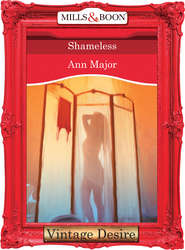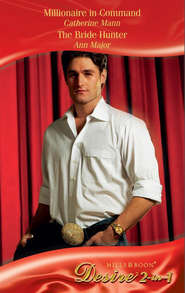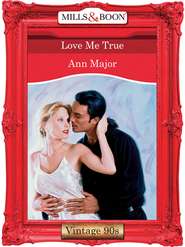По всем вопросам обращайтесь на: info@litportal.ru
(©) 2003-2024.
✖
Midnight Fantasy
Автор
Год написания книги
2018
Настройки чтения
Размер шрифта
Высота строк
Поля
He fought to stand up in the gummy mud, but a boot sent him reeling in the warm, soupy water. Panic surged through him when big hands clamped around his shoulders and pressed him deeper.
He fought. His lungs burned with the fierce will to breathe. He pushed harder and was stunned when their grip on his neck miraculously loosened. His head broke the surface, and he choked on watery breaths as a shell was racked into a chamber. A shotgun blast exploded. Then everything got quiet.
He reeled backwards, flopping helplessly as the weights pulled him under. Strangely, as he began to sink, dying, his terror subsided.
All was peace and darkness.
Was this how she’d felt when her alarm went off and she couldn’t get up?
Again he was a frightened, guilt-stricken boy shivering in wet pajamas. Bear tucked under his arm, he’d padded into his mother’s dark bedroom. Bright sunshine lit her black, tangled hair. Lost in shadows her body was a slovenly heap, half on, half off the bed.
Her alarm kept ringing. He’d lain for hours, listening to that ringing till it had become a roar in his head. She was mean most mornings. Mean every night. How he lived for those rare moments when she tried to be nice, when she read to him from the books Miss Ancil loaned him from the library.
As always her bedroom stank of booze and cigarettes.
“Mommy! I—I’s sorry, so sorry…I wet….”
He’d called her name after this confession and promised the way he did every morning never ever to do it again.
Only she hadn’t cussed him. Nor had she gathered him into her arms and clung to him as if he were very dear which she sometimes did. She’d just lain there.
Finally, he’d gone to her and shaken her. “Open your eyes. Please, Mommy.” He’d touched her cheek. She’d felt so stiff and cold…like his frosted window-pane in winter. Her alarm clock kept ringing.
He hadn’t thought of that morning in years. Then here it was, his last thought on earth.
After her funeral his aunts had marched him over to his father’s house. A man with black hair and blazing silver eyes had thrown open the door. His aunts had pushed him forward just as the door had slammed.
He’d been shuffled among distant kinfolk who had too many kids of their own. He’d done time in foster homes with other throwaways like himself, gotten in trouble at school. Then, miraculously, his father had had a change of heart and adopted him. He’d done everything in the world to please his father, eventually, even going into business with him.
Then one night he’d worked late and without warning opened the wrong file on a computer.
A gush of water soaked his gag, slid down his throat, up his nostrils, burning, strangling. He was dying when brutal hands manacled his waist, maneuvered his head forcefully to the surface, dragged him out of the water and flung him onto the muddy bank.
A rough voice cursed him in Cajun French. Gnarled fingers tore off his soggy blindfold, ripped at the duct tape over his mouth, then yanked the gag out.
“Jesus.” His rescuer’s breath stank of gin and tobacco as he pounded his back. Water trickled out of the drowning man’s lips in spurts.
“Damn it,” he pleaded.
The hard palm froze. “Ha! So! You’re alive!”
He was rolled over and a flashlight jammed under his chin. “You don’t look too good.”
“Damn it!” He grabbed the light and shone it at his rescuer.
The stranger had wrinkled brown skin, white hair, and soulless black eyes. “You don’t look so good yourself.”
Yellow teeth flashed in an irreverent grin. “The name’s Frenchy.” Frenchy seized his long black flashlight and turned it off. “Frenchy LeBlanc. I was just helping my brother check his trotlines. We fell out…. He’s kinda cranky.”
“Not like you…sweet as sugarcane.”
With a grin, Frenchy ripped off the tape at the prisoner’s ankles along with a wad of dark body hair.
“Ouch!”
“You need a ride home? A hospital? Or the police station?”
“I’m okay.”
“You’re beat up pretty bad—” When he said nothing, Frenchy held out his hand and helped him to his feet. “You gotta name, boy?”
He hesitated. Then, just like that, a name popped up from his childhood. But his voice sounded rusty when he used it. “Tag…”
The older man eyed him. “Tag. Tag what?”
Right. Right. Last name. “Campbell…Tag…Campbell.”
“Like hell!” The yellow grin brightened. “You been to Texas…Tag?”
Tag shook his head.
The older man’s gaze appraised his tall, muscular body. “You got soft hands for a big guy…and a hard face…and eyes that don’t quite match it. That suit, even trashed, looks like it set you back some.”
Tag said nothing.
“Real work might do you good—”
“Damn it…if you’re going to insult me—”
“I fish. I could use a deckhand.”
Tag turned away helplessly, and stared at the lurid shadows the cypress trees with their draperies of moss made. A deckhand. Minimum wage. For years he’d been on the fast track. His education. His career. His high-flying plans for his father’s company. He’d been good, really really good at one thing.
But he couldn’t go back.
“I’ve always worked in an office, but I lift weights in my gym every afternoon. I’ve never had time to fish,” he said. Never wanted to. But he didn’t say that.
Frenchy nodded, taking in more than was said. “I don’t blame you for saying no to such hard, thankless work.”
“I didn’t say no, old man…. You’d have to teach me.”
Frenchy patted his shoulder. “You gotta job.”
“Thanks.” Tag’s voice was hoarse. He was disgusted that it might betray eagerness and gratitude. He knew better than to believe that this crude stranger or his casual offer and his kindness tonight meant anything.
He was through with ambition, through with dreams, through with false hopes that led nowhere. Again he was staring into his father’s cold gray eyes. He was through with family and dreams of real love, too.
A deckhand. A trashy job working for a crude, trashy guy.











